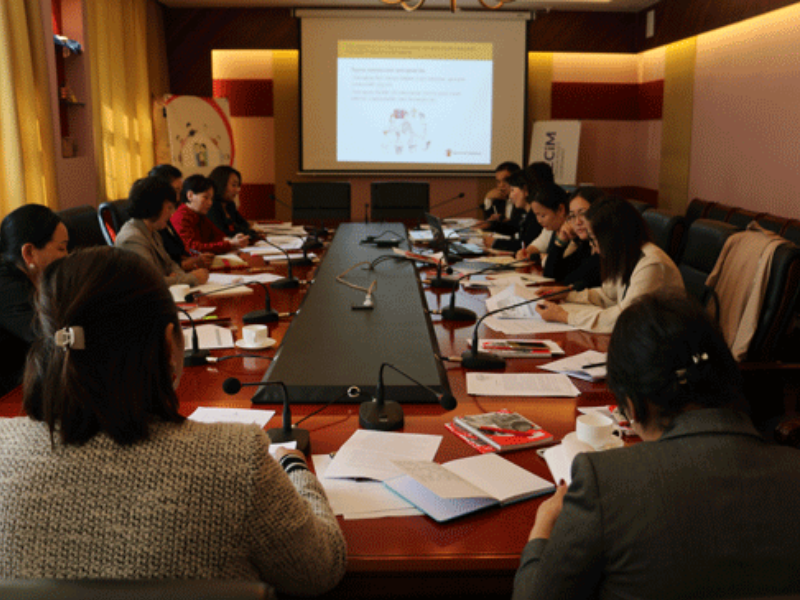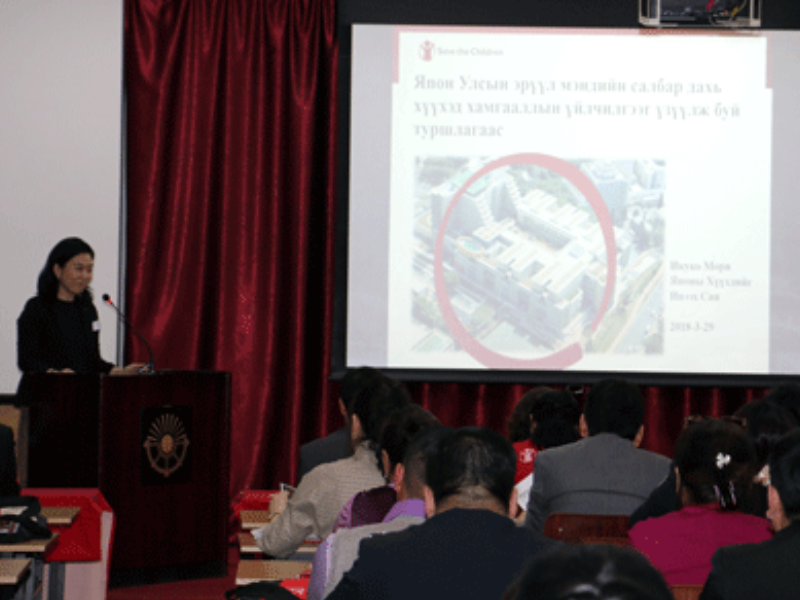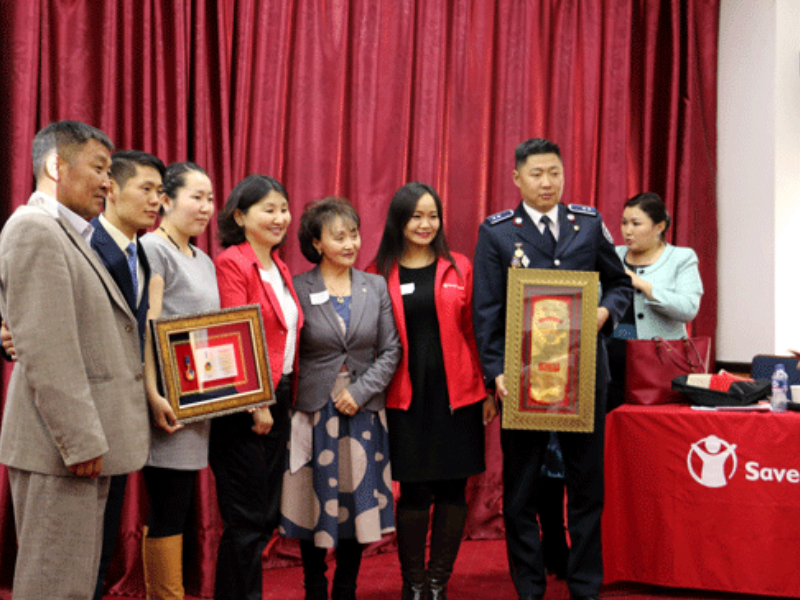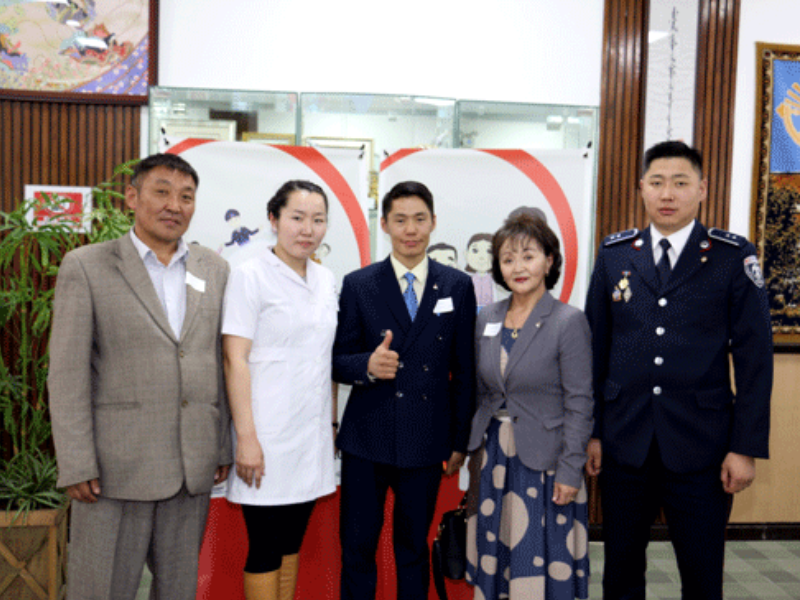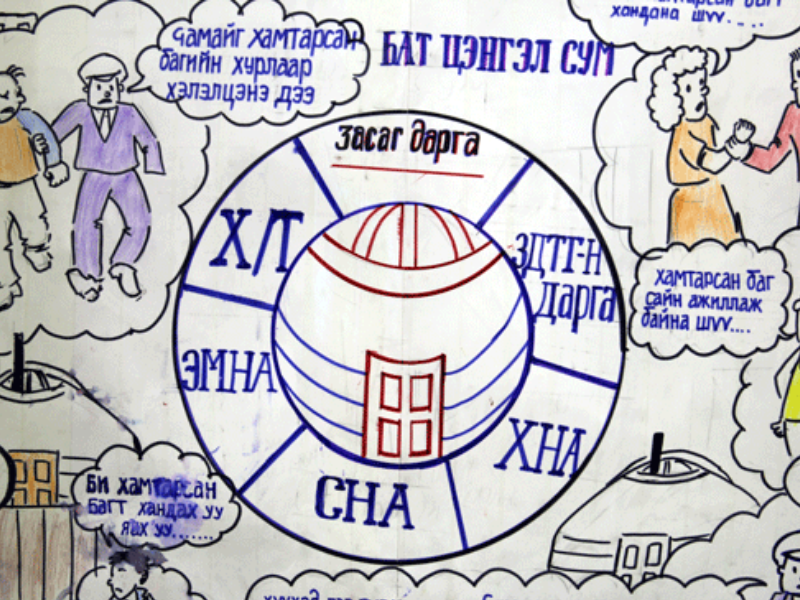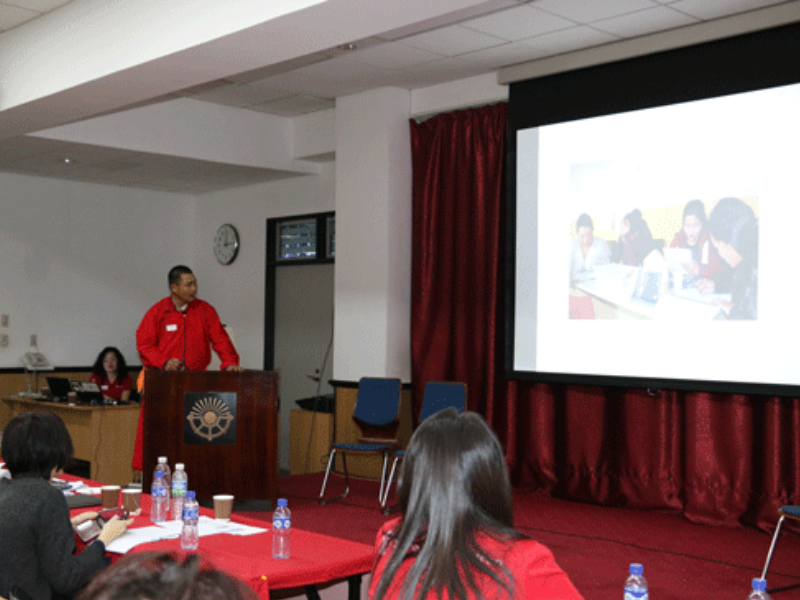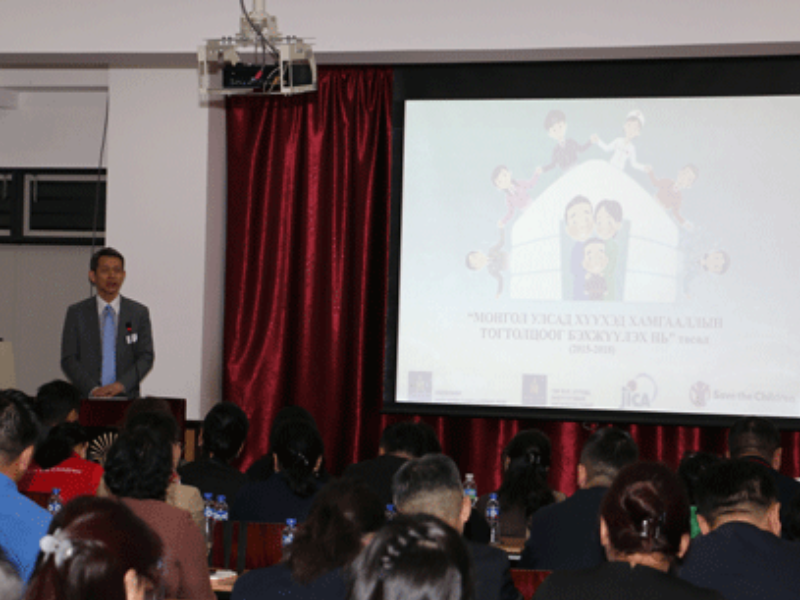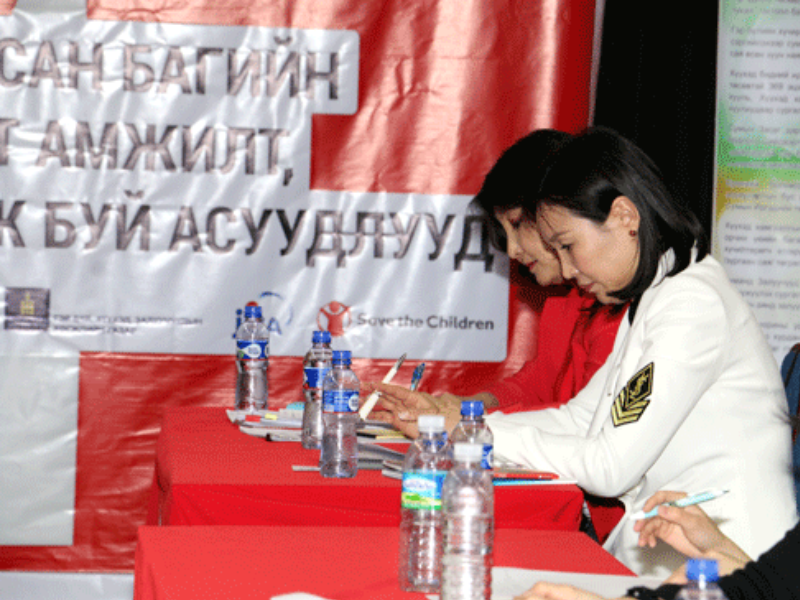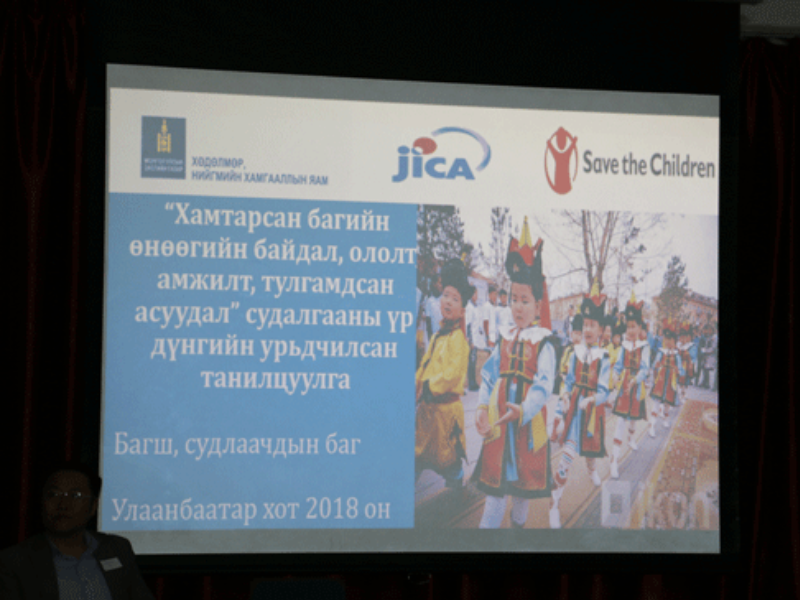Multidisciplinary teams take more effective approaches to child protection
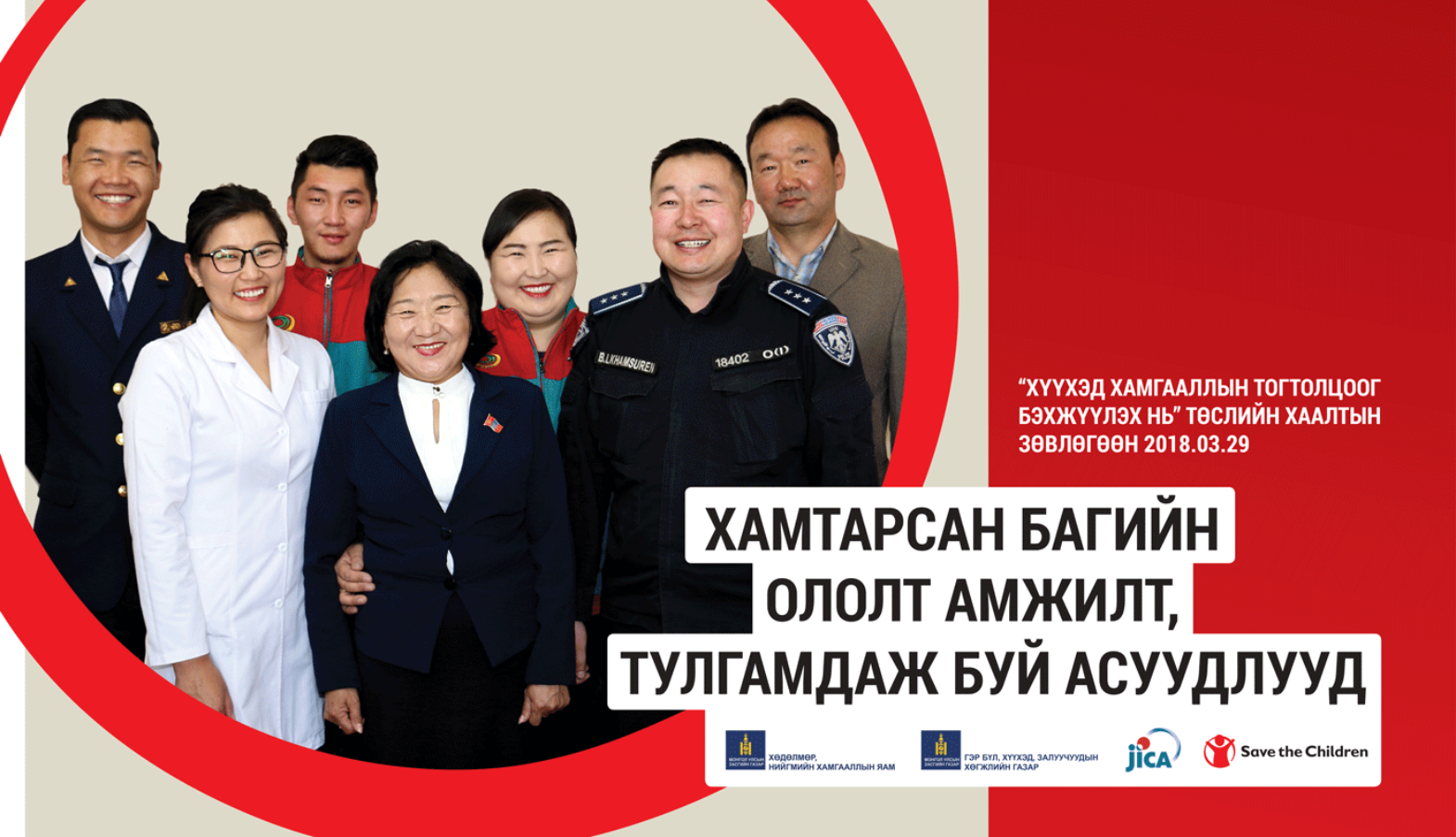
The project “Strengthening the child protection system in Mongolia” was funded by the Japanese International Cooperation Agency (JICA) and implemented by Save the Children Mongolia, the Ministry of Labour and Social Protection, and the Authority for Family, Youth and Child Development (AFCYD) from 2015-2018.
It was implemented successfully in 6 khoroos of Bayanzurkh, Songinokhairkhan, Chingeltei districts as well as the bagh of Erdenebulgan soum, Khairkhan, Battsengel soums of Arkhangai province.
The project’s closing event was held on March 29, 2018. Among those attending were the deputy Minister for Labour and Social Protection, the director of the JICA in Mongolia, the country director of Save the Children in Mongolia, representatives of AFCYD at national, subnational and Ulaanbaatar city level, the National Police, Arkhangai government and program participants.

Save the Children invited leading stakeholders to discuss the activities and achievements of the project as well as the ongoing issues facing MDTs. Mr. Mitsuaki Toyoda, director of Save the Children in Mongolia said that “local multidisciplinary teams were only created after the ratification of the Child Protection Law in 2016.
“We identified a need for team members to understand the new Law and adopt a common approach to child protection. The project has aimed to assist this process with training and documentation that will be continue to be adopted at city, aimag, soum and bagh levels throughout the country. The project has been funded by the Japan International Cooperation Agency (JICA) and we have worked closely with national partners and Save the Children in Japan to deliver the activities.”
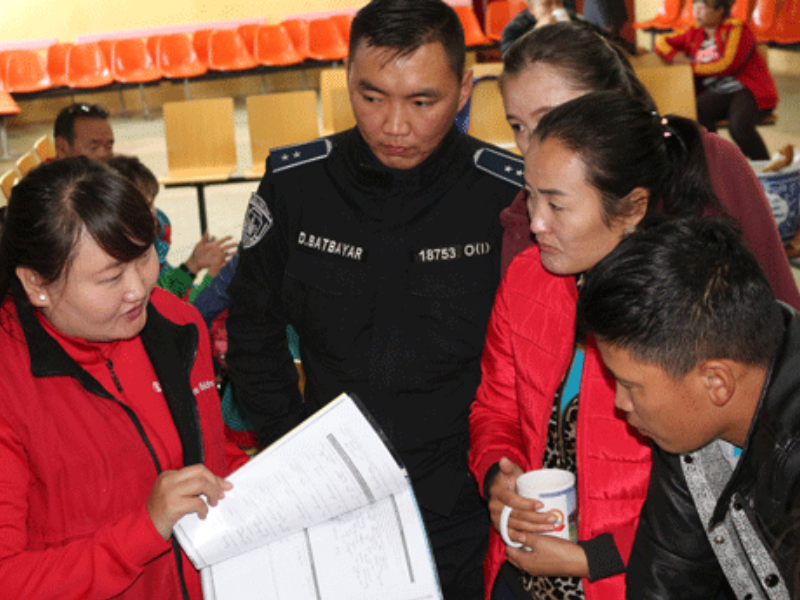
The focus of the project has been on
- Building the capacity of MDTs through training on child protection issues;
- Developing and disseminating a national guidance manual for MDTs;
- Designing and implementing universal case management forms to improve consistency of protection within and between aimags;
- Training parents on positive discipline methodology.
First, 165 MDT members of nine targeted sites attended training on child protection services and acquired a common understanding of how best to provide services for families and children. Results of the survey conducted at the end of the project showed that MDT members` knowledge and skills had improved by 80% compared to the baseline study in 2015. MDTs in the project target baghs, soums, and khoroos identified a total of 176 cases, referred 33 cases , transferred 13 cases, solved 48 cases, and provided individual and family counseling to 204 children and families during the 3 years of implementing the project.
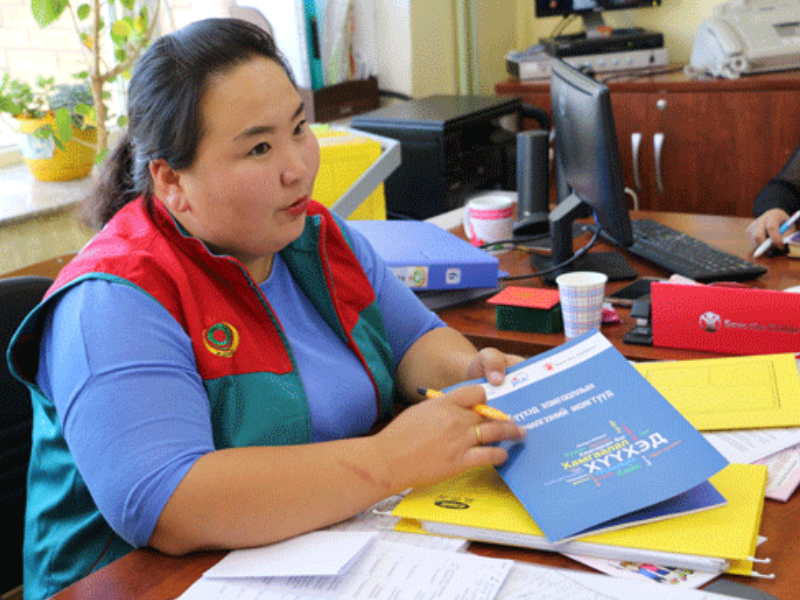
Case management forms for MDTs
Second, the child protection case management form developed within the project was approved by the Minister of Labor and Social Protection and adopted by MDTs throughout Mongolia. The new forms provide MDTs and courts with comprehensive information on the family situation and a professional assessment of their needs. This improves the quality of decisions made to protect children and families. Save the Children Mongolia conducted 149 face-to-face counselling, 107 group counselling, face-to-face counselling for 90 parents and 63 children, 187 online and telephone counselling through its Child Protection Resource Center of Save the Children.
Third, a series of trainings on positive discipline were conducted for 221 parents and caregivers to raise public awareness of alternatives to corporal punishment. The “Mum and Dad” book which encourages parents to use age-appropriate positive discipline with their children was launched during the project and was awarded the 2017 “Positive Change” trophy by the Authority for Family, Youth and Child Development (AFCYD). Survey results indicate that the understanding by MDT members of challenges facing parents has increased significantly in the last three years.
Fourth, a number of advocacy activities were organized at policy and decision-making levels. The project steering committee led by the deputy chairman of AFCYD played an important role in disseminating common understanding among stakeholders and integrating the project’s activities and impacts at policy level.
